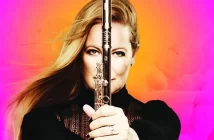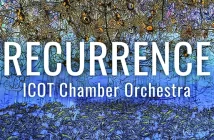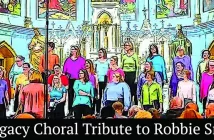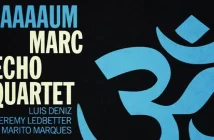
This page is also available in / Cette page est également disponible en:
![]() Francais (French)
Francais (French)
A Young Person’s Guide to Classical Music
From one year to the next, Jeunesses Musicales du Canada (JMC) stages over 1,200 concerts and workshops in about 200 venues in Quebec, Ontario and the Maritimes. This non-profit organization has promoted the cause of classical musical like no other in Eastern Canada on the basis of its educational and support programs for young musicians. Danièle Leblanc, the JMC general director, offers some historical insights.
On Aug. 23 of this year, JMC turned 70. Its co-founders Gilles Lefebvre, Father J.H. Lemieux, Anaïs Allard-Rousseau and Laurette Desruisseaux-Boisvert modelled it on similar initiatives existing in Europe at the time. In Quebec, there were only two classical music institutions around, the Montreal Symphony Orchestra and a network of conservatories, established respectively in 1934 and 1942. Yet, the four principals really had to start from scratch. From day one, JMC was guided by a core principle, which was to make classical music more accessible to the masses by democratic means. In its first decade, the organization grew by leaps and bounds. After joining the international Jeunesses Musicales movement, it created a musical camp under its own name, now known as Orford Musique. This first period, running till 1970, was focused on getting the organization on a solid footing.
70 Years Young
Over the next 20 years, youth outreach programs became the new priority. “The approach changed in the 1970s,” Leblanc explains. “Concert programs were put together with younger audiences in mind, which meant more condensed time-wise and more listener-friendly, where performers presented the music in a more interactive way.” In Montreal, the Sons et brioches series at the Piano Nobile of Place des Arts and the Cushion Concerts in Toronto are good examples of this, each having made a difference in the lives of young musicians, past and present.
The appointment of Joseph Rouleau as president of the JMC in 1989 was a game changer for the organization. With the help of André Bourbeau, a prominent politician of the day, the new head would expand its activities further afield, both in Quebec and in neighbouring provinces. Of the key business decisions taken over the last 30 years, the establishment of the Fondation Jeunesses Musicales in 1984 was a crucial one, two more being the move into its current headquarters in 2000 and the creation of an annual competition (Concours musical international de Montréal) two years later.
Paving the Way for the Future
Youth outreach continues to be its main focus, with added tweaks and perks along the way. Listing all workshops and concept programs could fill a book. The bulk are designed for pre-school to grade-school children. Some have met such success as to have been given repeated runs. One of these, l’Opéra-bonbon: l’aventure gourmande d’Hansel et Gretel is a tasty treat and a whimsical take on opera; another, Athlètes de la flûte à bec, showcases the world of the recorder in all of its facets. The list keeps growing from year to year. One recent addition, Ceux qui rêvent…, is a dream-like show that introduces First Nations music to novices. While these presentations are mostly staged in concert venues and theatres province-wide, they are adaptable to schools and kindergarten settings, where they can fulfill their educational mission just as well.
“Everything has to be done in a spirit of openness,” Leblanc says. “The name of the game is to make music more accessible and appealing to young people. You have to keep that in mind at all times. And even more now, given the failings of the education system in this regard.” One good example of the openness Leblanc pleads for is the “Classicofone” workshop: tablets are handed to the young for the purpose of exploring sounds in an intuitive and creative way.
Of its many assets, JMC has provided countless touring opportunities for aspiring talents across Canada. Some have built their careers on this: James Ehnes, Charles-Richard Hamelin, Marie-Nicole Lemieux and Stéphane Tétreault. Now linked to a well-established network, JMC does more than open doors for artists: it reaches out to remote communities whose audiences are otherwise not given the chance to hear quality music presented in an enlightening way. For next year, soprano Anna-Sophie Neher, pianists Carl Matthieu Neher and Teo Gheorghiu and the duo STICK&BOW are a few of the lucky beneficiaries of this arrangement. This year also marks a first: a coast-to-coast tour co-organized by JMC with Prairie Debut and Début Atlantique featuring the violin-piano duo Jonctions of Amy Hillis and Meagan Milatz.
“For our anniversary year, we are freshening up our look a bit,” says Leblanc. “For one thing, we have designed a new logo and a website. Next, we are currently searching out new partnerships to reposition ourselves on the Canadian classical music scene.”
The groundwork for those initiatives Leblanc talks about was effectively laid down ages ago when that dynamic duo of Joseph Rouleau and André Bourbeau rallied the troops in their respective artistic, business and political communities. Both of these men thrust the JMC to where it is today. It is heartening to know that today’s team of administrators and artistic advisors are just as passionate and dedicated to the cause of classical music and its outreach to the next generation. Now that the great bass Rouleau left us just weeks ago, the organization he once spearheaded is forging ahead, more open than ever to new collaborations and partnerships that, after all, are essential ingredients of music itself.
Go to: www.jmc.ca
Translation by Marc Chénar
This page is also available in / Cette page est également disponible en:
![]() Francais (French)
Francais (French)














